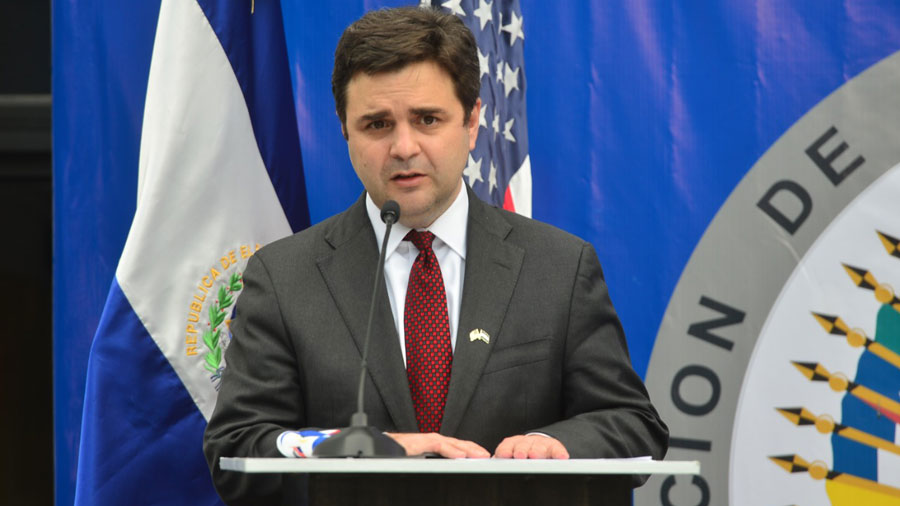
Zúñiga, who is Joe Biden’s special government envoy to the Northern Triangle countries, responded to statements by Nayib Bukele, who weeks ago claimed that the United States is trying to implement “recycled” plans in the region.
The United States aims to fight corruption in Central America to curb mass migration, said President Joe Biden’s diplomatic envoy to Guatemala, Honduras and El Salvador on Friday, the source of much of the growing influx of undocumented people into the United States. South American border.
“Corruption is driving much of the instability and lack of development that has led to the end of mass migration for years,” said Ricardo Zúñiga, special envoy of the State Department for the North American North Triangle.
You can read: Joe Biden abandons his promise to increase refugee admissions in the US. UU.
“So we have a strong interest in ensuring stability and good governance in Central America and we want to work with those who have these same interests,” he said in an interview with AFP.
Zúñiga, who last week traveled to Guatemala and El Salvador and met in Washington with Honduran authorities, said the United States is moving forward with its announced plan to create a regional anti-corruption task force.
“There will be a task force led by the Department of Justice and other partners that will assist Central American governments and public servants in their search not only for specific cases involving acts of corruption, but for systems that help combat impunity and prevent it. corruption, ”he explained.
“The concrete implementation is something we will negotiate with partners in the region,” said Zúñiga, a Honduran-born American.
He stressed that in the Northern Triangle there are already efforts behind transparency: in civil society, in the prosecution and in the independent press.
“There is a lot of work going on, which we will continue to support through our embassies and with the presence of our legal and other aggregates,” he said.

Ricardo Zúñiga met with representatives of different institutions in El Salvador, including the Attorney General’s Office. Photo: Archive
Bukele’s foreign policy increasingly moving away from Washington
Weeks ago, specifically on March 24, Salvadoran President Nayib Bukele strongly criticized the term “Northern Triangle” and ruled that if the United States wanted to seriously address the issue of immigration to Central America, it should abandon this concept.
In his words, posted via his Twitter account, the president also said the United States should work with its “all-time” partners to push for proven solutions.
However, the statement that generated reactions in Joe Biden’s special envoy, was in which Bukele said that the plans that Washington is trying to implement in the region are “recycled”, because they had already been implemented in 2014 and “didn’t work.”
Days later, on April 1, Bukele again questioned the term “Northern Triangle,” while assuring that any plan that contemplated the existence of that term had “zero chance of success.”
Read also: “Trends (by Nayib Bukele) have been worrisome”: Joan González, Biden’s main adviser
In the same tweet, the president referred to the work of various congressmen who in recent weeks have questioned the policies of the president, including the representative of the 35th District of California, Norma Torres, who was attacked by Bukele and many of his followers on social media, claiming that the congresswoman had confused El Salvador with Ecuador.
Faced with this disqualification of the term that includes the three countries of the region (Guatemala, Honduras and El Salvador), a journalist from the middle La Veu de América consulted Zúñiga if the plans of the American government would work without the total Bukele support.
Zúñiga, for his part, replied: “We are not talking about recycled plans, we have worked quite closely with the governments of Central America,” adding that there is a lot of cooperation from Salvadoran institutions in implementing the plans. trying to run Joe Biden’s government, however, ignored making any direct comments about the lack of support from the president.